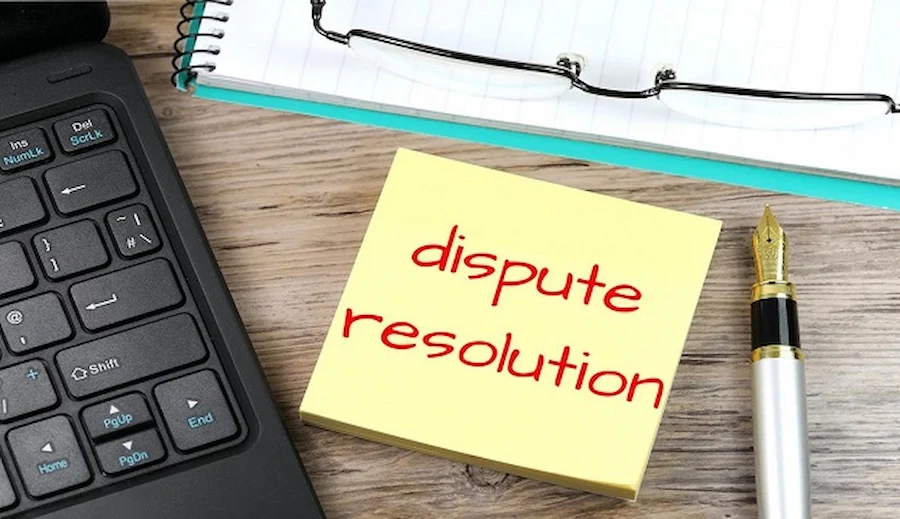Real estate litigation.com serves as a trusted resource for anyone facing real estate legal disputes, offering insights into the litigation process in real estate and how to protect property interests effectively. Whether you’re a buyer, seller, or investor, understanding real estate litigation cases can help you avoid costly mistakes and confidently handle potential conflicts.

Content
What Is Real Estate Litigation and Why Does It Matter?
In simple terms, real estate litigation.com refers to the process of resolving property ownership conflicts and other real estate legal issues through the court system. These disputes often arise during property sales, development, leasing, or construction.

Many people assume that hiring an attorney is only necessary once a lawsuit begins. However, early legal guidance can help prevent the situation from escalating into full-blown property litigation. Platforms like reale state litigation.com provide valuable education on how to identify risks and seek timely resolution.
Common Real Estate Legal Disputes You Should Know
Over the years, I’ve seen a wide range of real estate litigation.com cases—from minor contract misunderstandings to complex ownership battles. The most common include:
- Real estate contract disputes – Often triggered by breach of contract, missed deadlines, or non-disclosure of critical details.
- Boundary and title conflicts – Disagreements over property lines or unclear titles can cause long-term tension.
- Construction defects – When new builds or renovations don’t meet expected standards, property litigation attorneys step in to protect the owner’s rights.
- Commercial real estate litigation – Involving lease disagreements, zoning violations, or investment misrepresentations.
- Residential property lawsuits – Typically revolve around home purchase contracts, inspection findings, or financing disputes.
These examples highlight why it’s essential to understand your rights and the real estate dispute resolution process before problems arise.
How Real Estate Litigation.com Helps Simplify the Legal Journey
The beauty of RealEstateLitigation.com lies in its ability to simplify complex topics. It bridges the gap between legal terminology and practical action. Whether you need insights about real estate mediation and arbitration or want to explore real estate attorney services, the platform serves as a knowledge base for property owners and investors alike.
By reading expert-driven content, you can better understand what to expect when dealing with real estate law and litigation and learn how to prepare for each stage—from negotiation to trial.
Real-Life Case Study: When a Boundary Dispute Turned into a Legal Lesson
Let me share a real-world case that perfectly demonstrates the importance of timely legal action.
A homeowner in California purchased a property that bordered an older estate. A few months after closing, the neighbor claimed that part of the newly purchased land—roughly three feet—belonged to them based on an outdated fence line. Initially, both parties tried informal negotiation, but it failed.
With the help of a property litigation attorney, the buyer filed for a property ownership conflict resolution. After a thorough litigation process in real estate, the court found that the buyer’s title was legally valid and ordered a new boundary survey.
The case not only reaffirmed the importance of accurate documentation but also showed how online resources like Real Estate Litigation.com can guide individuals through complex disputes by offering clear explanations of legal procedures and case examples.
Understanding the Real Estate Dispute Resolution Process
The real estate dispute resolution process can vary, but it typically follows these key stages:

- Negotiation – Attempting to resolve the issue through open communication between parties.
- Mediation or Arbitration – Involving a neutral third party to facilitate agreement without going to court.
- Litigation – When resolution fails, the case is presented before a judge for a final decision.
It’s always best to explore real estate mediation and arbitration first since they save time, money, and emotional strain. However, if legal intervention becomes inevitable, partnering with skilled property litigation attorneys ensures that your interests are fully represented.
The Role of Real Estate Attorneys
A real estate attorney does far more than argue cases in court. They assist with due diligence, contract drafting, and risk analysis to prevent conflicts from escalating. Whether dealing with commercial real estate litigation or residential property lawsuits, having the right legal support is invaluable.
Moreover, real estate attorney services often include guidance on zoning laws, construction disputes, and fraud prevention—areas that can easily lead to real estate legal disputes if ignored.
Lessons from Real Estate Litigation Cases
Based on years of observation, three key lessons stand out from real-world real estate litigation cases:
- Documentation is Everything – Always maintain copies of contracts, inspection reports, and correspondence.
- Legal Counsel Early On – Consulting an attorney before signing or disputing anything can prevent costly lawsuits.
- Stay Informed – Platforms like real estate litigation.com empower you to understand legal risks and make informed decisions.
Final Thoughts
Dealing with Flaw can be overwhelming, but with the right knowledge and resources, you can handle them effectively. Websites like Real Estate Litigation.com offer not just legal insights but also confidence to navigate the litigation process in real estate.
Whether you’re managing commercial real estate litigation or resolving a residential property lawsuit, remember that education, preparation, and expert guidance are your strongest tools for protecting your investment.
FAQs
What is RealEstateLitigation.com?
RealEstateLitigation.com is a platform offering guidance on real estate legal disputes and litigation insights.
When should I contact a property litigation attorney?
Contact a property litigation attorney as soon as a dispute or contract issue arises.
Can real estate disputes be resolved without going to court?
Yes, mediation or arbitration can settle real estate legal disputes before court action.
What are the costs involved in real estate litigation cases?
Real estate litigation costs depend on case complexity, attorney fees, and court expenses.

With a sharp eye for design and a passion for renovation, Samantha transforms fixer-uppers into dream homes. Her expertise in remodeling adds extra value to your real estate experience.












